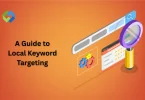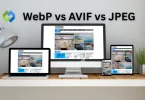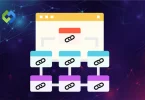Both have their own merits, benefits, features, and target audience features—so the decision is significantly business objective-, industry type-, and cost-dependent.
With 2025 set to witness even greater progress in ad automation, AI, and privacy policies, it’s more crucial than ever to learn about the variations between Google and Facebook’s PPC models.
Table of Contents
Understanding Google Ads: The Power of Intent
Google Ads, Google Search Ads, and Google PPC rely to a great extent on a search-based advertising model. The advertisers buy bids on the keywords to which the product or service they want to offer is relevant, and the ads get featured in front of the users searching for the same on Google.
Benefits of Google Ads:
- Strong Purchase Intent: Google Ads aim at customers who are actively searching for a solution. It is thus perfectly suited to bottom-of-funnel leads.
- Keyword targeting: Companies can optimise their campaigns with a high level of precision by using tools.
- Strong Local Reach: Google Ads’ geotargeting features are ideal for Australian companies.
- Extensions & Ad Formats: Advertisers can add phone numbers, site links, and promotions to add text to boost CTR and conversion.
Disadvantages:
- Cost-Per-Click (CPC): High-intent keywords are cost-competitively high, for example, in real estate, finance, or law sectors.
- Learning Curve: The Google Ads platform is robust yet complex. Most companies employ a paid marketing agency to execute strategy, analytics, and performance optimisation.
Learning Facebook Ads: Social Targeting at Scale
Facebook Ads (currently operated by Meta Ads, e.g., Instagram, Messenger, Audience Network) is social discovery-based. Ads are targeted on the basis of user behavior, interests, and demographics, not what they are looking for.
Benefits of Facebook Ads:
- Highly Granular Audience Targeting: Companies are able to target users by age, interests, behavior, location, life events, etc.
- New Ad Formats: Carousel ads, video stories, and instant experiences are interactive formats for engaging with users.
- Low Cost for Awareness: For awareness or discovery about your product or company, Facebook Ads will have a bias towards offering lower CPCs compared to Google Ads.
- Remarketing Potential: Facebook Pixel enables effective remarketing, remembering users who have already interacted with your business.
Disadvantages:
- Lower Purchase Intent: Customers aren’t necessarily in buy mode—they’re just lurking. This will generally result in lower conversion on high-ticket or time-buy items.
- Ad Fatigue: Repeatedly targeting the same customers can cause engagement decline over time. Consistent creative refresh is required.
Comparative Breakdown: Key Differences
| Feature | Google Ads | Facebook Ads |
| User Intent | High (search-based) | Low to moderate (interest-based) |
| Targeting | Keyword, device, time, location | Demographic, behavioral, interest |
| Conversion Funnel | Bottom-of-funnel | Top-to-mid funnel |
| Ad Formats | Text, call, shopping | Visual, video, carousel |
| Best For | Urgent services, high-intent sales | Brand awareness, engagement, B2C |
| Cost Per Click | More costly for competitive keywords | Lower total |
| Remarketing | Yes (through Google Display Network) | Yes (through Facebook Pixel) |
Use Cases Scenarios: When to Use What?
1. Local Service Providers
A Google Ads electrician in Perth or Adelaide dentist will get improved ROI via Google Ads. People are also actively looking for emergency services like “emergency electrician near me.” The increasing intent to search ensures improved conversion opportunities.
2. eCommerce and DTC Brands
Skin care businesses, fashion businesses, or interior design businesses marketing to Australian millennials can improve on Facebook Ads. Engaging posts drive interest, and with appropriately delivered remarketing, Facebook has the ability to convert cold leads into customers.
3. B2B and SaaS Companies
Google Ads gives more qualified leads due to highly targeted keyword search terms like “CRM software for small business.” Facebook may be supplemented with retargeting and the distribution of lead magnets (e-books, webinars, etc.) for funnels.
Leverage Both Together: A Two-Pronged Approach
Rather than rivaling one another, most companies in Australia are leveraging both together to create full-funnel campaigns:
- Use Google Ads for high-intent search targeting.
- Retarget web visitors through Facebook retargeting ads.
- Fuel Facebook conversions with brand awareness and Google.
- Test creatives and copy on platforms to see which performs best with your audience.
This combined approach delivers maximum reach with performance retained across multiple touchpoints of the customer journey.
The Role of SEO and Organic Strategy
Although PPC gives instant visibility, long-term brand success will always hinge on organic search. Budgeting SEO services on your ad budgets will prevent excessive dependence on paid traffic in the long run.
For example, a law firm in Melbourne might be pushing leads from Google Ads today, but building search authority with links and content does it for them tomorrow. The combination of SEO and PPC not only maximizes quality score, but channel synergy—enhancing organic and paid performance both.
Most Important Trends Impacting PPC Strategy in 2025
AI and Automation
Google and Meta are doubling down as well on AI-driven campaign management. Smart Bidding, Advantage+ Shopping, and auto-gen creative minimize human touch while allowing advertisers to propel maximum ROI.
Privacy and Tracking Limitations
Apple’s iOS releases and Google’s deprecation of cookies are limiting third-party tracking. First-party data collection and server-side tracking are emerging as the ticket to campaign success.
Video as a Preferred Format
Video adverts are overtaking static on both fronts. Mobile-first video narratives are most crucial for marketing B2C services and products to Gen Z and Millennials in Australia.
Voice Search and Smart Assistants
Devices that respond to voice are revolutionising search habits. Google Ads must now accommodate more conversational, longer keyword phrases—a trend that is further building in pace through 2025.
Common Mistakes to Avoid
- No Clear Goals: Don’t begin without ensuring that you’re converting traffic, leads, or sales.
- Not Testing Creative: All of your ads need to be tested via A/B testing regularly.
- Mismatched Landing Pages: Ad and landing page need to match message, design, and CTA.
- Not Accounting for Attribution Windows: Facebook attribution is different from Google’s. Understand where credit is due.
- Overcomplicating Campaigns: Better, more accurate, simple campaigns, especially under AI optimisation.
- Not monitoring campaigns: Analyse campaigns data directly in platforms or with third-party solutions like a Google Ads connector.
Last Words
Facebook Ads and Google Ads are never competitors—instead, they are complementary ad spaces in your digital marketing arsenal. The key to success with PPC Australia is not choosing either or but understanding how and when to utilize each platform for intent, audience behavior, and campaign objectives.
With more automation, stricter privacy policies, and changing consumer behaviors, 2025 is the year to spend smart, not more. Working either through a paid marketing agency or running in-house campaigns, the future belongs to those brands that have the right mix of strategy, creativity, and data.
Bleed each platform for its strongest strengths, and you’ll discover the aggregate PPC marketing potential in today’s competitive online environment.
Bhumi’s Author Bio.
Bhumi Patel has vast experience in Project Execution & operations management in multiple industries. Bhumi started her career in 2007 as an operations coordinator. After that, she moved to Australia and started working as a Project Coordinator/ Management in 2013. Currently, she is the Client Partner – AUSTRALIA | NEW ZEALAND at Magneto IT Solutions – a leading Web development company, where she works closely with clients to ensure smooth communication and project execution, also forming long-term partnerships. Bhumi obtained a Master of Business Administration (MBA) in Marketing & Finance between 2005 and 2007.














